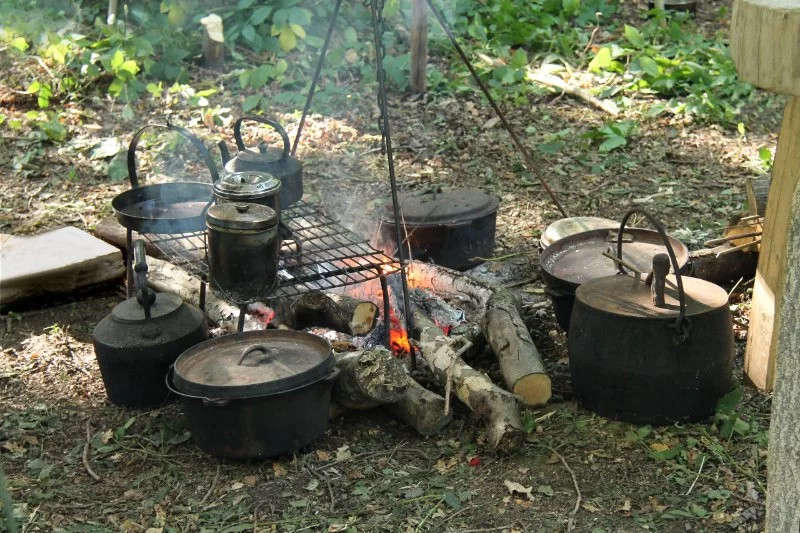Explore the benefits of outdoor culinary adventures for skill development. Discover how cooking in nature boosts creativity, resilience, teamwork, and real-world kitchen instincts through hands-on, memorable experiences.

- why-outdoor-cooking-enhances-skill-building - Why Outdoor Cooking Enhances Skill Building
- real-world-scenarios-and-practical-lessons - Real-World Scenarios and Practical Lessons
- developing-soft-skills-through-culinary-adventures - Developing Soft Skills Through Culinary Adventures
- stories-from-the-wilderness-kitchen - Stories from the Wilderness Kitchen
- culinary-creativity-in-outdoor-settings - Culinary Creativity in Outdoor Settings
- how-to-get-started-with-outdoor-culinary-experiences - How to Get Started with Outdoor Culinary Experiences
- discover-curated-culinary-adventures - Discover Curated Culinary Adventures
1. Why Outdoor Cooking Enhances Skill Building
When we think about culinary development, our minds often picture modern kitchens, glossy countertops, and professional appliances. But outdoor culinary adventures offer a raw, rewarding environment where skills are honed differently—through problem-solving, adaptability, and real connection to ingredients. That’s why the benefits of outdoor culinary adventures for skill development go far beyond recipe mastery.
In nature, there's no backup oven, no automatic timer. You're forced to rely on your senses, instincts, and creativity. From regulating fire heat to identifying local edible plants, these outdoor cooking experiences sharpen both technical and life skills.
2. Real-World Scenarios and Practical Lessons
2.1 Cooking Without Modern Tools
Try making a full breakfast on a campfire with only a skillet and a spatula. Suddenly, you learn how much heat different woods give off, how to cook evenly, and how timing can be critical. These are lessons that improve your overall kitchen instincts once you’re back indoors.
2.2 Ingredient Management and Improvisation
Outdoor culinary adventures often come with limited supplies. This teaches resourcefulness—making decisions based on what you have, not what’s ideal. Can’t find fresh herbs? Learn how wild garlic or spruce tips can add flavor. This improvisation boosts your flavor intuition and creative thinking.
2.3 Understanding the Food Source
When you catch your own fish, forage mushrooms, or cook farm-fresh eggs by the lake, you gain an appreciation for origin, seasonality, and sustainability. These are core concepts every skilled cook needs to embrace, and the outdoors makes them real—not just theoretical.
3. Developing Soft Skills Through Culinary Adventures
3.1 Leadership and Collaboration
Outdoor cooking is often a team sport. Whether you’re building a fire together or assembling kebabs for a lakeside dinner, communication and collaboration are essential. Leadership often emerges naturally in these settings, especially when there's a shared goal: a warm, delicious meal.
3.2 Patience and Resilience
Outdoor conditions can be unpredictable—wind, rain, missing ingredients. These moments test your patience and ability to adapt under pressure. Learning to stay calm and solution-oriented while cooking in the wild can carry over to any professional kitchen or high-stakes environment.
3.3 Observation and Timing
Unlike digital ovens or precise stovetops, open fire or charcoal requires constant attention. You learn to observe, adjust, and act—timing becomes intuitive. These sensory skills are invaluable for any serious cook.
4. Stories from the Wilderness Kitchen
Emma, a culinary school student from Colorado, spent a summer interning at a mountain lodge where outdoor cooking was part of daily life. “I thought I knew how to cook,” she says. “Then I had to prepare a three-course meal using only a firepit and a Dutch oven.”
She remembers burning the first batch of cornbread but learning fast how to regulate the coals. “Now, back in a professional kitchen, my timing is sharper, and I trust my instincts more than ever.”
Similarly, a scout leader from Oregon shared how teenagers in his group grew more confident after leading a simple outdoor cook-off challenge. “They learned how to plan, execute, and serve food in teams. It was more impactful than any classroom lesson.”
5. Culinary Creativity in Outdoor Settings
5.1 Reinventing Traditional Recipes
Without access to high-end gadgets or specialty ingredients, outdoor cooking pushes creativity. How do you make dessert with no oven? Fruit skewers grilled over embers with a sprinkle of cinnamon sugar become a crowd favorite. No pasta maker? Try shaping handmade dough with a camping mug.
5.2 Experimenting with Local Flavors
Outdoor cooking in new regions encourages exploration of local ingredients—wild herbs, game meat, or native spices. These experiences deepen your culinary vocabulary and make you more adventurous in your own kitchen.
5.3 Visual Presentation with Natural Materials
Presentation doesn’t stop outdoors. A dish served on a slate stone or wrapped in fresh leaves not only looks stunning but connects your cooking to the landscape around you. This teaches awareness of aesthetics even in rugged settings.
6. How to Get Started with Outdoor Culinary Experiences
6.1 Start Simple and Safe
You don’t need to go on a week-long wilderness retreat to begin. Start with a backyard fire pit or a day trip with a camp stove. Focus on simple recipes that don’t require complex timing—like foil-pack meals, skewers, or one-pot stews.
6.2 Join a Guided Culinary Retreat
If you want to take your skills to the next level, consider a guided culinary getaway. These experiences blend outdoor survival, cooking, and cultural storytelling. Some even include foraging and wine pairing under the stars.
6.3 Learn Fire and Food Safety
Before diving in, make sure you understand fire safety and basic food handling in outdoor conditions. A good experience starts with smart prep and risk awareness.
7. Discover Curated Culinary Adventures
For those ready to immerse themselves in nature and food, Pine Cliff Resort offers curated outdoor culinary experiences that are as educational as they are delicious. Whether you're a home cook looking to build confidence or a professional chef exploring new perspectives, these guided adventures give you access to local ingredients, expert mentorship, and unforgettable landscapes.
At Pine Cliff Resort, cooking becomes more than a task—it becomes an adventure. Discover what it means to grow as a cook in the most hands-on, inspiring way possible: under the open sky, with fire, food, and community.
Coosa River Campground llc.
73565 AL-77, Lincoln, AL 35096, USA
Visit Location PageLook Rock Campground
Look Rock Campground Loop A, Tallassee, TN 37878, USA
Visit Location Page